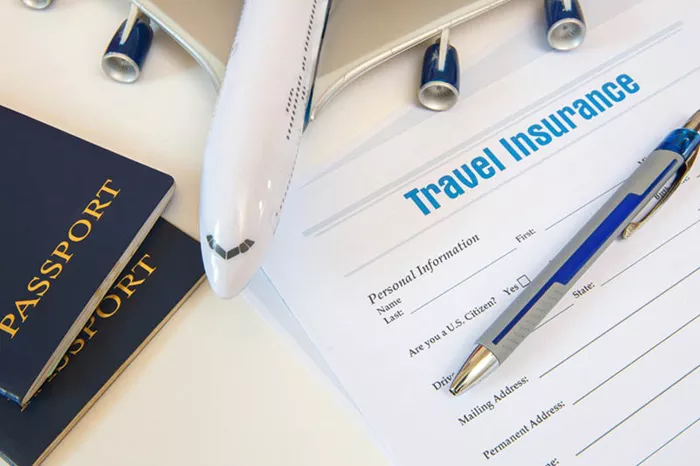In an era marked by unprecedented global mobility, the importance of travel insurance cannot be overstated. Whether embarking on a leisurely vacation or a business trip, travelers face a myriad of risks ranging from medical emergencies to trip cancellations. In light of these uncertainties, selecting the right travel insurance policy becomes paramount. This essay aims to provide a comprehensive guide on the essential components to consider when evaluating travel insurance options, with a focus on coverage for medical emergencies, epidemic and pandemic coverage, trip cancellation and interruption, loss or delay of baggage, travel delays, emergency assistance services, pre-departure benefits, exclusions and limitations, and the cost relative to the value offered.
Coverage for Medical Emergencies
One of the primary considerations when choosing a travel insurance policy is coverage for medical emergencies. A robust policy should provide extensive coverage for accidents and illnesses incurred during the trip. This includes medical expenses such as hospitalization, surgeries, ambulance services, and doctor consultations. Additionally, it is essential to inquire about coverage for pre-existing conditions, as not all policies include this benefit. Pre-existing condition coverage ensures that travelers with existing health concerns are adequately protected while abroad. However, it’s crucial to review the policy’s definition of pre-existing conditions and any limitations or exclusions associated with this coverage to avoid surprises later.
Epidemic and Pandemic Coverage
In light of recent global health crises, such as the COVID-19 pandemic, epidemic and pandemic coverage has gained prominence in travel insurance policies. This coverage typically includes provisions for trip cancellations, trip interruptions, and medical care related to the epidemic. For instance, if a traveler contracts COVID-19 during their trip and requires medical treatment or quarantine, the insurance policy should cover related expenses. Similarly, if the government issues travel advisories or restrictions due to an epidemic, resulting in trip cancellations or delays, the policy should provide reimbursement or compensation for incurred losses. When evaluating this aspect of the policy, it’s essential to scrutinize the specific scenarios covered, as well as any exclusions or limitations related to epidemics and pandemics.
see also:which is the best travel insurance for over 70s?
Trip Cancellation and Interruption
Trip cancellations and interruptions can occur due to various unforeseen circumstances, including illness, injury, natural disasters, or travel advisories. A comprehensive travel insurance policy should offer coverage for a wide range of reasons for trip cancellation or interruption. This may include medical emergencies, death or illness of a family member, severe weather, terrorism, or jury duty, among others. It’s essential to carefully review the policy’s terms and conditions to understand the covered reasons and the process for claiming these benefits. Additionally, travelers should consider purchasing “cancel for any reason” (CFAR) coverage if they seek more flexibility and broader coverage for trip cancellations.
Loss or Delay of Baggage
The loss, theft, or delay of baggage can disrupt travel plans and result in significant inconvenience and financial losses. Therefore, an ideal travel insurance policy should provide coverage for lost, stolen, or delayed baggage. This coverage typically includes reimbursement for essential items purchased due to baggage delay, as well as compensation for the value of lost or stolen belongings. When evaluating this aspect of the policy, travelers should pay attention to the maximum coverage limits, any deductibles, and the process for filing a claim. Additionally, some policies may offer coverage for specific high-value items such as electronics or jewelry, so it’s advisable to inquire about such provisions.
Travel Delays
Travel delays, whether due to inclement weather, mechanical issues, or health concerns, can disrupt travel itineraries and lead to additional expenses. A comprehensive travel insurance policy should include coverage for various types of travel delays, including boarding denials due to health concerns or flight cancellations. This coverage typically reimburses travelers for additional accommodation, transportation, and meal expenses incurred due to the delay. Moreover, some policies may offer coverage for missed connections or alternative transportation arrangements. Travelers should carefully review the policy’s terms to understand the covered reasons for travel delays and the process for claiming reimbursement.
Emergency Assistance Services
Access to emergency assistance services is invaluable when facing unforeseen challenges or emergencies while traveling abroad. Therefore, travelers should seek insurance policies that offer round-the-clock assistance services.
These services often include access to a dedicated helpline staffed by medical professionals and travel assistance experts who can provide guidance, support, and coordination in case of emergencies. Additionally, emergency assistance services may include medical evacuation or repatriation in severe cases where local medical facilities are inadequate. When evaluating this aspect of the policy, travelers should inquire about the scope of services offered, response times, and any associated costs or limitations.
see also:How much is holiday insurance from the post office?
Pre-departure Benefits
Pre-departure benefits are another crucial aspect of a comprehensive travel insurance policy, providing coverage for expenses incurred before the trip commences. This may include reimbursement for non-refundable trip costs in case of trip cancellation, as well as coverage for trip interruption or delay before departure. Pre-departure benefits offer financial protection against unforeseen events such as illness, injury, or travel advisories that may necessitate changes to travel plans. Travelers should carefully review the policy’s terms and conditions to understand the covered reasons for pre-departure benefits and any exclusions or limitations associated with this coverage.
Exclusions and Limitations
While travel insurance policies offer essential protections, it’s essential to be aware of their exclusions and limitations. These may include specific scenarios or circumstances not covered by the policy, such as extreme sports or activities, pre-existing medical conditions, or travel to high-risk destinations. Additionally, policies may impose limits on coverage amounts, deductibles, or maximum reimbursement rates for certain benefits. Travelers should thoroughly review the policy’s exclusions and limitations to assess their potential impact on coverage and consider purchasing additional coverage or riders as needed.
Cost and Value
Finally, when evaluating travel insurance policies, travelers should consider the cost relative to the coverage provided to determine the overall value for money. While it’s tempting to opt for the cheapest policy available, it’s essential to strike a balance between affordability and comprehensive coverage. Travelers should compare premiums, deductibles, coverage limits, and benefits offered by different policies to make an informed decision. Additionally, considering the potential financial losses and risks associated with travel, investing in a comprehensive policy with adequate coverage may ultimately prove more cost-effective in the long run.
Conclusion
Selecting the right travel insurance policy requires careful consideration of various factors, including coverage for medical emergencies, epidemic and pandemic coverage, trip cancellation and interruption, loss or delay of baggage, travel delays, emergency assistance services, pre-departure benefits, exclusions and limitations, and the cost relative to the value offered. By thoroughly evaluating these components and choosing a policy that meets their specific needs and preferences, travelers can embark on their journeys with confidence and peace of mind, knowing they are adequately protected against unforeseen risks and emergencies.
FAQs about Travel Insurance
1. What do I need in my travel insurance?
The specific coverage you need in your travel insurance policy depends on factors such as the type of trip you’re taking, your destination, and your individual preferences. However, some essential components to consider including in your travel insurance are:
Trip cancellation and interruption coverage: Reimburses prepaid, non-refundable trip expenses if you have to cancel or cut short your trip due to covered reasons, such as illness, injury, or unforeseen events.
Emergency medical and dental coverage: Covers expenses for medical treatment or dental emergencies during your trip, including hospital stays, doctor visits, and medications.
Emergency medical evacuation and repatriation: Covers the cost of transportation to the nearest adequate medical facility or repatriation to your home country in case of a medical emergency.
Baggage loss, theft, or delay coverage: Provides reimbursement for lost, stolen, or delayed baggage, as well as coverage for essential items purchased due to baggage delay.
Travel delay and missed connection coverage: Reimburses expenses for additional accommodation, meals, and transportation if your trip is delayed or if you miss a connecting flight due to covered reasons.
24/7 assistance services: Access to emergency assistance services such as medical referrals, legal assistance, and travel arrangements in case of emergencies while traveling.
2. Which insurance company is best for travel insurance?
The best travel insurance company for you depends on your individual needs, preferences, and the specific coverage you require for your trip. Some well-regarded travel insurance companies include Allianz Global Assistance, Travel Guard (by AIG), World Nomads, and Travelex Insurance Services. It’s essential to compare quotes, coverage options, customer reviews, and financial stability ratings from multiple insurers to find the best travel insurance provider that meets your needs and offers comprehensive coverage at a competitive price.
3. What is the recommended amount of travel insurance?
The recommended amount of travel insurance varies depending on factors such as the cost of your trip, your destination, the length of your trip, and your individual risk tolerance. As a general guideline, experts suggest purchasing travel insurance coverage that includes at least:
- Trip cancellation and interruption coverage equal to the total cost of your prepaid, non-refundable trip expenses.
- Emergency medical and dental coverage with a minimum limit of $100,000 to $250,000.
- Emergency medical evacuation and repatriation coverage with a minimum limit of $100,000 to $500,000.
- Baggage loss, theft, or delay coverage with a sufficient limit to cover the value of your belongings.
It’s essential to carefully assess your travel insurance needs and consider factors such as your health, age, activities planned during your trip, and the level of risk associated with your destination to determine the appropriate amount of coverage.
4. What is included in standard travel insurance?
Standard travel insurance typically includes a range of coverage benefits designed to protect travelers against common risks and emergencies encountered during trips. These may include:
- Trip cancellation and interruption coverage
- Emergency medical and dental coverage
- Emergency medical evacuation and repatriation
- Baggage loss, theft, or delay coverage
- Travel delay and missed connection coverage
- 24/7 assistance services
You Might Be Interested In




















